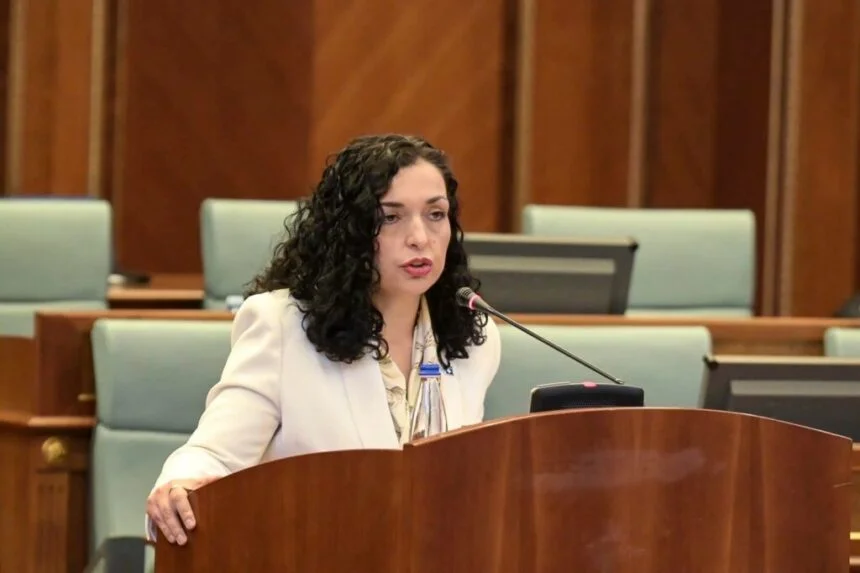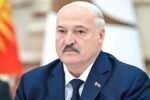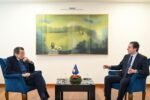We have major work ahead President Vjosa Osmani expressed hope that the Assembly of Kosovo will be constituted and a new government elected on Tuesday, April 15, emphasizing the urgency of addressing significant national issues. One of the key matters, according to President Osmani, is the tariff imposed on the United States, which she has urged to be removed as soon as possible. This issue has caused tension between the outgoing government and the presidency.
“I sincerely hope that on April 15 we will see the constitution of the Assembly and the election of the Government of the Republic of Kosovo, so we can immediately begin addressing the critical matters facing our country.
I mentioned the issue of the tariff, which is one of the major topics that should be handled by the Assembly without delay,” said President Osmani during an interview with Rubikon.
She also mentioned a number of international agreements that, if approved by the Assembly, would significantly benefit Kosovo in the context of the EU’s Growth Plan, from which other countries, including Albania, are already benefiting.
“I’m not a member of the Assembly to vote, but I call on political parties to pass these agreements, because Kosovo has been left behind in accessing the benefits of the EU Growth Plan.”
Regarding Kosovo’s Council of Europe membership process, President Osmani noted that while some countries are attempting to link the vote to the formation of a new government, there is no constitutional basis for such a connection.
“As you know, the vote in the Council of Europe is scheduled for May. Some countries wish to tie this to the election of a new government. However, from a constitutional standpoint, there is no need for such a connection.
The government’s competencies are not limited, and this agreement does not require ratification by the Assembly.”
On the issue of international recognition, Osmani emphasized that this process is led by the presidency and should not be hindered by delays in government formation.
“The President leads foreign policy. Of course, when countries look for excuses to delay important processes — whether economic issues or membership in international organizations — they often cite internal developments.
But the recognition process itself continues, as we, the presidency, manage diplomatic communication. Still, the absence of fully functioning institutions may affect applications and other matters.
Therefore, I remain hopeful that the institutional setup will be finalized soon,” Osmani concluded.







